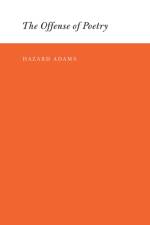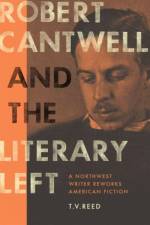av Hazard Adams
399
There is something offensive and scandalous about poetry, judging by the number of attacks on it and defenses of it written over the centuries. Poetry, Hazard Adams argues, exists to offend - not through its subject matter but through the challenges it presents to the prevailing view of what language is for. Poetry's main cultural value is its offensiveness; it should be defended as offensive.Adams specifies four poetic offenses - gesture, drama, fiction, and trope - and devotes a chapter to each, ranging across the landscape of traditional literary criticism and exploring the various attitudes toward poetry, including both attacks and defenses, offered by writers from Plato and Aristotle to Sidney, Vico, Blake, Yeats, and Seamus Heaney, among others. "e;Criticism,"e; Adams writes, "e;needs renewal in every age to free poetry from the prejudices of that age and the unintended prejudices of even the best critics of the past, to free poetry to perform its provocative, antithetical cultural role."e;Poetry achieves its cultural value by opposing the binary oppositions - form and content, fact and fiction, reason and emotion - that structure and polarize most understandings of literature and of life. Adams takes a position antithetical to the extremes of both abstract formalism and the politicization of literary content. He concludes with an appreciation of what he calls the double offense of "e;great bad poetry,"e; poetry so exceptionally bad that it transcends its shortcomings and leads to gaiety. He reminds us that Blake, in The Marriage of Heaven and Hell, identified angels with the settled and coercive and assigned the qualities of energy and creativity to his devils. According to Adams, poetry, in its broad and traditional sense of all imaginative writing, may be identified with Blake's devils.


